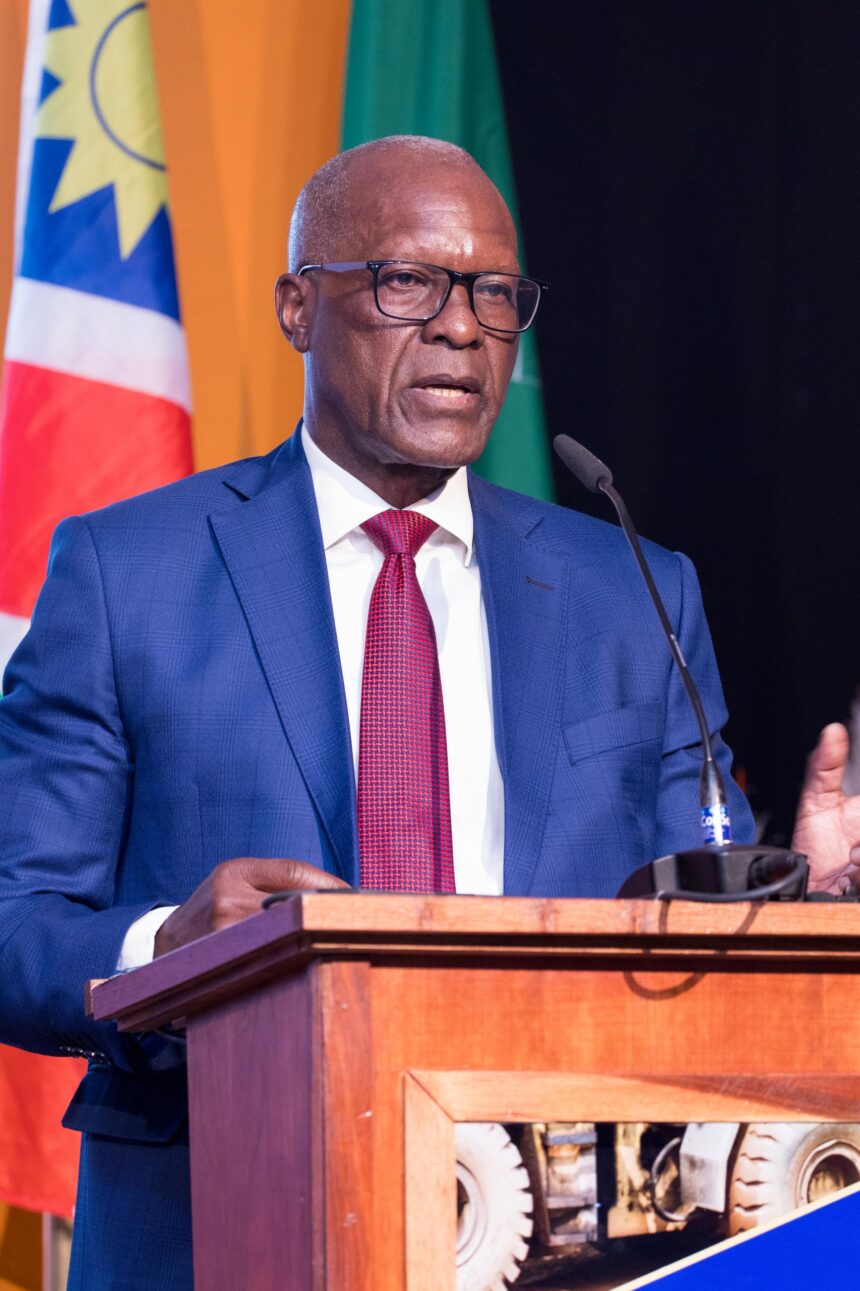Energy minister Tom Alweendo recently discussed an array of issues under his purview while reflecting on the Namibian International Energy Conference held earlier this year.
The conference was seen as an excellent setting to celebrate the work being done to grow the country’s energy industry.
It is a private sector-led event that brings stakeholders together to collaborate in meaningful conversations that may not otherwise happen.
Namibia has become an oil exploration hotspot after several discoveries in recent years along its coast. Oil majors such as TotalEnergies and Shell have made discoveries, initially estimated at 2.6 billion barrels. However, Portugal’s Galp Energia said it had found at least 10 billion barrels of oil equivalent in its Mopane field, in the largely unexplored Orange Basin.
More than 12 oil companies, including Exxon, Shell and Brazil’s national oil company, have expressed interest in buying a 40% stake in Galp Energia’s major oil discovery offshore Namibia.
Namibia is planning for first oil production between 2029 and 2030, but petroleum commissioner Maggy Shino at a recent international energy conference said
Namibia is seeking to accelerate the timeline to first production.
Alweendo recently sat down with New Era’s Edward Mumbuu on NBC’s flagship talk show, ‘One on One’.
Alweendo, a seasoned technocrat, also tackled the economic viability for Namibia to establish an oil refinery at a time when recent massive oil discoveries off Namibia’s coast are the talk of town.
An oil refinery refers to an industrial installation where crude oil is refined to produce fuels including petrol, paraffin and diesel. Having an oil refinery in Namibia would make oil cheaper for consumers, as is the case in many other parts of the world, the public believes.
But Alweendo has a slightly different view, saying production costs would still drive up the cost of oil, even if there is a refinery locally.
“Just because it’s refined in your country does not make it any cheaper. What it
does, though, is if you have the refinery,
it will add another economic activity… Therefore, it’s a good idea to say, let’s see why we should not refine this product for ourselves. But it will not necessarily mean it will be cheaper. For example, production of oil is much cheaper in the Middle East because, number one, it’s onshore. It’s not as deep,” he said.
The minister continued: “Ours is offshore, six kilometres down, and therefore, for you [Namibia], the cost of you taking that out will filter into the price of the final product. I will also agree with those who say let’s have a refinery in the country because we got this [resource], and therefore, that’s what we should do. Not because it’s going to be cheaper for us to have, but simply because it’s going to add another economic activity to the country.”
Local content
Alweendo is adamant that oil and gas are an important sector for any country.
“But to make sure that it will mean much more for the country, for the economy, and for Namibian people, we need to emphasise what is called local content. That local content simply means that we should not rely on the revenue that we are going to receive from oil and gas, which comes from royalty and taxes or ownership dividends.
“While that is good enough, let’s make it more encompassing, where the services that must be provided to this industry will be provided by Namibian businesspeople. This is what we call local content. Therefore, you’re going to capture the value chain of this industry,” he said.
He also demystified the notion of whose oil it is.
“It’s good that you ask it. Because the backlash that you talk about is when I said, while the oil belongs to the State and, therefore, to the Namibian people in terms of our constitution, let’s not sit with the mind of entitlement. There’s a difference between being entitled to something, and having an entitlement. It’s two different things.
“If you are entitled, it means that, yes, you should get this. It’s really like you have got the right to have it, and we do have that right. Entitlement means simply because now I am entitled to it, it’s like I don’t need to do anything else. It’s just going to happen to me, or it’s going to happen for me,” the former Bank of Namibia governor said.
He added, “I was saying, if we have that attitude and we forget to make sure that we learn the industry, everything is just going to bypass us. And when we look back, it will be other people who will be making money out of this industry because we simply said, Oh, we are entitled to this, and therefore, it’s just going to happen to me. That’s really the difference, I’d say.”
He went on to say the local content
policy will only have a meaningful contribution if it is accompanied by the right skills and attitude.
“It’s only going to work when you also got people with the right skills, with the right attitude, with their drive to get it, with the persistence to want to get it. Only then is it going to happen. That’s really what I meant to say. It’s not to say Namibians shouldn’t be participating, but let’s prepare ourselves to say our participation is going to be meaningful,” he said.


